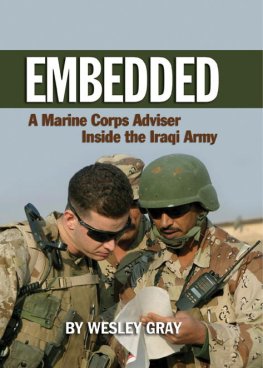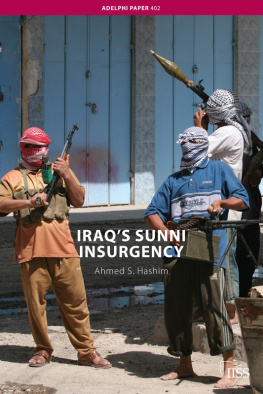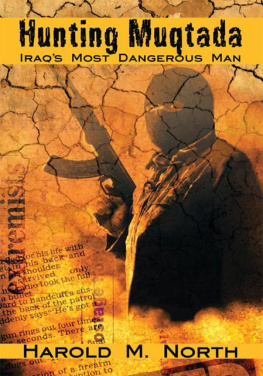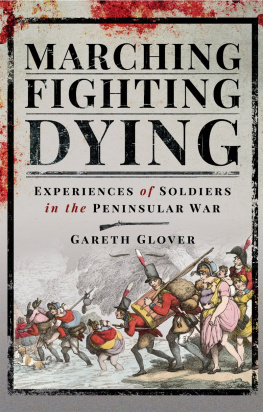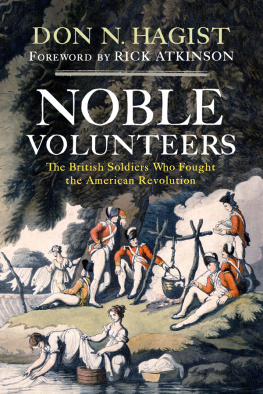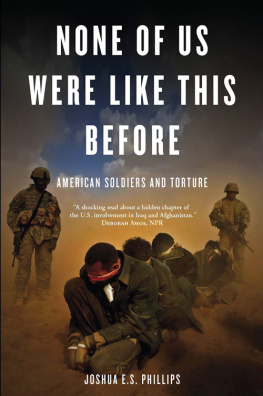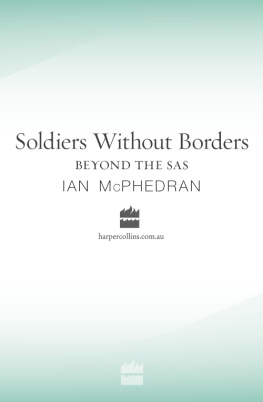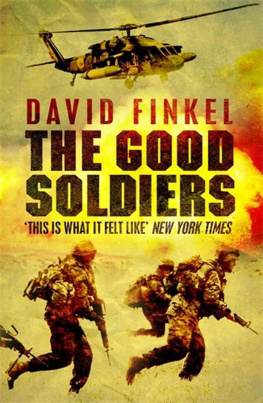Copyright 2012 by J. B. Walker
All Rights Reserved. No part of this book may be reproduced in any manner without the express written consent of the publisher, except in the case of brief excerpts in critical reviews or articles. All inquiries should be addressed to Skyhorse Publishing, 307 West 36th Street, 11th Floor, New York, NY 10018.
Skyhorse Publishing books may be purchased in bulk at special discounts for sales promotion, corporate gifts, fund-raising, or educational purposes. Special editions can also be created to specifications. For details, contact the Special Sales Department, Skyhorse Publishing, 307 West 36th Street, 11th Floor, New York, NY 10018 or .
Skyhorse and Skyhorse Publishing are registered trademarks of Skyhorse Publishing, Inc., a Delaware corporation.
Visit our website at www.skyhorsepublishing.com
10 9 8 7 6 5 4 3 2 1
Library of Congress Cataloging-in-Publication Data is available on file.
ISBN: 978-1-61608-617-6
Printed in the United States of America
All authors proceeds of publication
will go to charities that serve military families.
PROLOGUE:
SCATTERED CRUMBS
I t was an air assault mission into an insurgent enclave in the summer of 2006. Some soldiers were monitoring an insurgent safe house from behind a dirt mound next to a canal. One of them slipped down into the canal, filled with a viscous brown goo instead of water, and everyone, of course, started laughing. It was the second daystill two more to goand the team leader suggested, Well, you can sit here smelling like a shit rat, or you can grab a couple of guys and go jump in the other canal; it just might clean you up. More laughter, but he did go and jump in the other canal. Later, nearly freezing, he continued watching the house all night, wrapped in a poncho liner and snuggling his buddies to stay warm, all the while mumbling a string of profanities. Im telling you man, the next idiot that tells me Iraq is a desert, Im gonna punch in the face. Yeah, everyone talks about the desert, nobody talks about the goddamn canals! For the rest of that mission he was an endless source of humor.
Soldiers joked that somebody should write this stuff down, the simple charms of soldiering.
A week later, the same soldiers were walking the streets of another insurgent enclave. On the third day of the mission, eight hours before pick-up, some of them walked to a little house in an orchard where, they had learned, there were some surviving victims of insurgent violence. The familya prematurely aged mother, two adolescent kids, and a disabled fathertold the same story of violence, displacement, destitution, and constant fear that soldiers had heard repeatedly in theocratic enclaves. Soldiers have seen entire villages emptied, every house booby-trapped, sometimes bodies of villagers piled insideit just depended on the rabidity of the particular insurgent group that ran the show. This man had resisted leaving his house, and they shot him through the knee. The wound is not properly healed; some kind of fluid was still seeping out.
What could anyone possibly say at this moment?
Because sorry does not quite capture it; in fact it feels like it would be an insult. Blank stares and grinding teeth, thats all. A soldier asked, Is this all the children you have?
No. Of course not, thats why he asked.
They had a teenage daughter, but she is missingbecause the Salafist virtue enforcers had taken her. Blank stares all around, what can one possibly say? There are many times when soldiers are constrained in their ability to act. Then they would resort to the only thing left: they collected some money and pathetically handed it to the family.
Standing around and having a smoke before walking to the patrol base, one of them casually commented, Ya know, why dont people write about this shit, about these fucking lunatics that they deal with?
W hat started off as a casual attempt to recount the soldiers personal story, in the summer of 2006 in an insurgent enclave, quickly changed into something else when we entered into a different neighborhoodcontrolled by an identical bunch.
It was a deliberate decision to write about this reality, that of Iraqis living through an insurgency as we understood it.
Soldiers would get glimpses of TV news stories, accounts that captured little of the reality of life in the Iraqi streets. The human essence was always stripped from the images. Iraqis remained a grand abstraction with no names, voices or faces.
Some soldiers and their leaders were increasingly obsessed with idea: Lets write about counterinsurgency the way it really is putting people center stage, weaving together the many stories of the Iraqi people we met, how we understood what was going on, and what some guys did. So other soldiers could use it, take what is valid from it, and try to improve upon it. It eventually became a simple promise among some friends
INTRODUCTION
When in doubt, tell the truth. That maxim I did
invent, but never expected it to be applied to me.
I did say, When you are in doubt, but when
I am in doubt myself I use more sagacity.
Mark Twain, When in Doubt, Tell the Truth
(speech, March 8, 1906)
T his is an impressionistic account of our counter insurgency in Iraq. We hope it will bring to life the stories and voices of the many Iraqi people in neighborhoods where we walked.
Given the nature of our job and the requirements of military security and the safety of the people concerned, this is written in the form of creative non-fiction. This account is truthful in the most important sense of the word, but it is also part hallucination. We have deliberately obscured time and fictionalized names and places, but we have remained true to reality in the illustrations of experiences, impressions, sentiments, imagining, and even our hallucinations.
In these pages, we re-create the war that we were part of, and as we understood its historical, political, and cultural contextthrough the stories of people: ourselves and our friends, and the many Iraqis we encountered. The stories make up a larger whole: our counterinsurgency in Iraq.
These impressions capture the way we fought and how we learned on the job. But we also capture an intellectual journey: how we came to understand a particular group of peopleIraqisand how we learned from them about their world, their struggles and aspirations.
This is mainly the story of enlisted men and enlisted leaders on the ground, along with a few young officersfriendswho shared their observations and insights. It relates how we came to terms with the (at times absurd) reality of counterinsurgency, and how we navigated in a culturally prohibitive atmosphere as American soldiers.
These impressions were compiled with the hope that they would help young leaders better understand the gritty realities that soldiers face on the ground in a counterinsurgency. We hope it is filled with common sense, because counterinsurgency will always predominantly be basic common sense. War (and counterinsurgency is a form of warfare) is as much about life as it is about deathonly in war they exist much closer together. An elemental part of combat will always remain how soldiers and leaders come to terms with this demanding reality and how well they follow through at the point of decision with a sense of responsibility.
The impressions recorded here are drawn from many friends from myriad branches of the army, but the narrative centers on a group of very fortunate soldiersfortunate in having had the experience of several dimensions of this conflict. A soldiers experience in combat is usually limited by his or her occupational specialty, the particular mission-set, and the area in which the unit is deployed. We felt very fortunate to conduct three very different mission-sets in succession and to work side by side with a unique group of colleagues from other branches.


